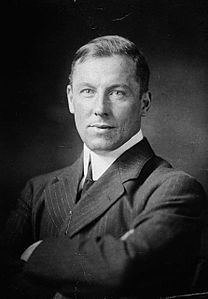Analysis of The Under-Dogs
Robert William Service 1874 – 1958
What have we done, Oh Lord, that we
Are evil starred?
How have we erred and sinned to be
So scourged and scarred?
Lash us, Oh Lord, with scorpion whips,
We can but run;
But harken to our piteous lips:
What have we done?
How have we sinned to rouse your wrath,
To earn your scorn?
Stony and steep has been our path
Since we were born.
Oh for a sign, a hope, a word,
A heaven glance;
Why is your hand against us, Lord?
Give us a chance.
What shall we do, Oh God, to gain
Your mercy seat?
Shall we live out our lives in pain
And dark defeat?
Shall we in servitude bow low
Unto the end?
How we would hope, could we but know
You are our friend!
We are the disinherited,
The doomed, the lost.
For breath with dust and ashes fed,
We pay the cost.
Dumb mouths! Yet though we bleed, with prayer
We kiss the sword;
Aye, even dying we forbear
To curse Thee, Lord.
| Scheme | ABABCDCD EFEFXGHG IJIJKLKL BXXXMHMH |
|---|---|
| Poetic Form | |
| Metre | 11111111 1101 11110111 1101 111111001 1111 11011011 1111 11111111 1111 100111101 1101 11010101 0101 11110111 1101 11111111 1101 111110101 0101 1101011 1001 11111111 11101 1101 0101 11110101 1101 11111111 1101 1101011 1111 |
| Closest metre | Iambic trimeter |
| Characters | 1,469 |
| Words | 174 |
| Sentences | 16 |
| Stanzas | 4 |
| Stanza Lengths | 8, 8, 8, 8 |
| Lines Amount | 32 |
| Letters per line (avg) | 20 |
| Words per line (avg) | 5 |
| Letters per stanza (avg) | 161 |
| Words per stanza (avg) | 43 |
Font size:
Submitted on May 13, 2011
Modified on March 05, 2023
- 52 sec read
- 89 Views
Citation
Use the citation below to add this poem analysis to your bibliography:
Style:MLAChicagoAPA
"The Under-Dogs" Poetry.com. STANDS4 LLC, 2024. Web. 28 Apr. 2024. <https://www.poetry.com/poem-analysis/32676/the-under-dogs>.


Discuss this Robert William Service poem analysis with the community:
Report Comment
We're doing our best to make sure our content is useful, accurate and safe.
If by any chance you spot an inappropriate comment while navigating through our website please use this form to let us know, and we'll take care of it shortly.
Attachment
You need to be logged in to favorite.
Log In